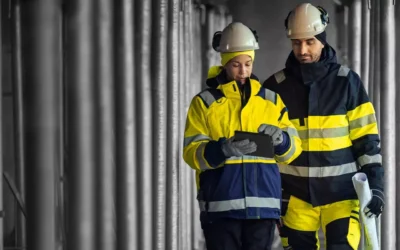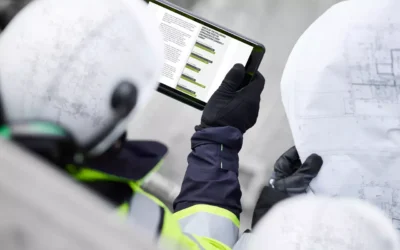While there may be some debate over when the practice of building commissioning actually started, it’s safe to say it became part of the regular construction workflow in the early 1980s. That’s not so long ago, given construction’s long history. Back then, the commissioning process would gear-up just as the project completion date was nearing as the process was meant to test and validate the various building systems, from mechanical to electrical.
Today, building commissioning looks quite different. In fact, over the last four decades, it’s undergone quite an evolution, driven by several factors that point to the need to more closely manage this practice. Let’s look at a few of the main drivers of change.
Increasing complexity of capital projects. If you’ve been in the industry for a while, you’ve likely experienced the steady demand for more from our buildings — a more occupant-friendly environment, more tech-enabled functionality, more safety and more security. This push has not only added complexity to already involved capital projects, but it has challenged the ability to keep pace with adequately ensuring optimal functioning and the quality of the very systems the building commissioning process is meant to validate. Part of that complexity involves more building regulations, evolving technologies and the solid lean toward more environmentally-friendly building practices.
Greater demand for energy efficiency. At their most basic level, owner project requirements are fairly straightforward: design and produce a well-functioning building with specifics provided for each project. Owners expect a structure that will be cost-efficient to maintain and energy efficient — electric, water, heating/cooling and ventilation — figures prominently in that equation. Systems have long been evaluated solely for functionality independent of each other. But there’s now a better understanding of how they actually work together and impact each other, adding to the complexity — and importance — of the building commissioning process.
Movement to green building certification. In tandem with better energy efficiency, the proactive efforts within the construction industry to protect the environment, conserve energy and promote sustainability have led to the creation of green certifications, including the internationally recognized LEED (Leadership in Energy and Environmental Design). While obtaining LEED certification isn’t mandatory, it can have an impact on reputation as an environmentally-responsible business and on the corporate wallet in the form of tax rebates. Green certification comes with building commissioning requirements — and more documentation — beyond basic “does it work when you turn it on” functionality, which has helped bring the process to the forefront in the industry.
Stricter regulatory standards. Remarkably, building commissioning is not an across-the-board requirement. However, along with improved building standards in the last couple of decades have come more exacting regulatory standards from utility companies, green building certification organizations, the Environmental Protection Agency (EPA), and cities and states that have increased interest in commissioning.
Installation of more sophisticated equipment and integrated systems. The equipment being installed today is far more advanced than when commissioning became a regular thing. The types of equipment found particularly in more sizable buildings include those that are responsible for not only delivering more temperate indoor conditions, increased safety and enhanced security, but providing more control over how each functions — especially for major builds. Those systems and equipment are designed using more technical know-how. Installing them can also require specialized expertise. The challenge? Those individual systems are very likely created with a very limited understanding, if any at all, of how they may impact or be affected by other equipment that make up the building’s overall system network, which leads us to the next point.
More in-depth systems knowledge is necessary for proper commissioning. Today’s more sophisticated equipment and integrated systems require a lot more than checking that the on-off switch works. Do the building commissioning professionals understand how to program everything, so it all runs as it’s supposed to? How can the entire system be verified from a commissioning standpoint while the project is under way to ensure proper functioning? Are they troubleshooting and repairing systems early on if an issue is found so there’s time to make corrections and avoid late-stage rework? These kinds of questions point to the need for ensuring commissioning professionals have a more thorough technical understanding of how the equipment and systems are supposed to work, both individually and together, to keep the building operating seamlessly and cost effectively. Not only that, those doing the commissioning have to be able to train the facilities management staff in how to operate and maintain that advanced equipment and systems.
And building commissioning management is about to get even more refined and technical. As urban areas undergo their own digital transformation and develop into “smart cities,” managing the commissioning of both new construction and existing structures as “smart buildings,” to incorporate advanced technologies, will take on more importance.
Just as technology is making buildings more comfortable, safe and efficient, technology is making the actual commissioning process itself more streamlined and manageable. More specifically, when considering software options, construction companies rank commissioning among the top categories critical to their success in the near future. InEight building commissioning is one such option. It centralizes all commissioning tasks and tracks every step of this vital process, ensuring your project meets all quality assurance and owner requirements upon handover to the owner. We’ll be happy to show you how it works when you request a demo.



